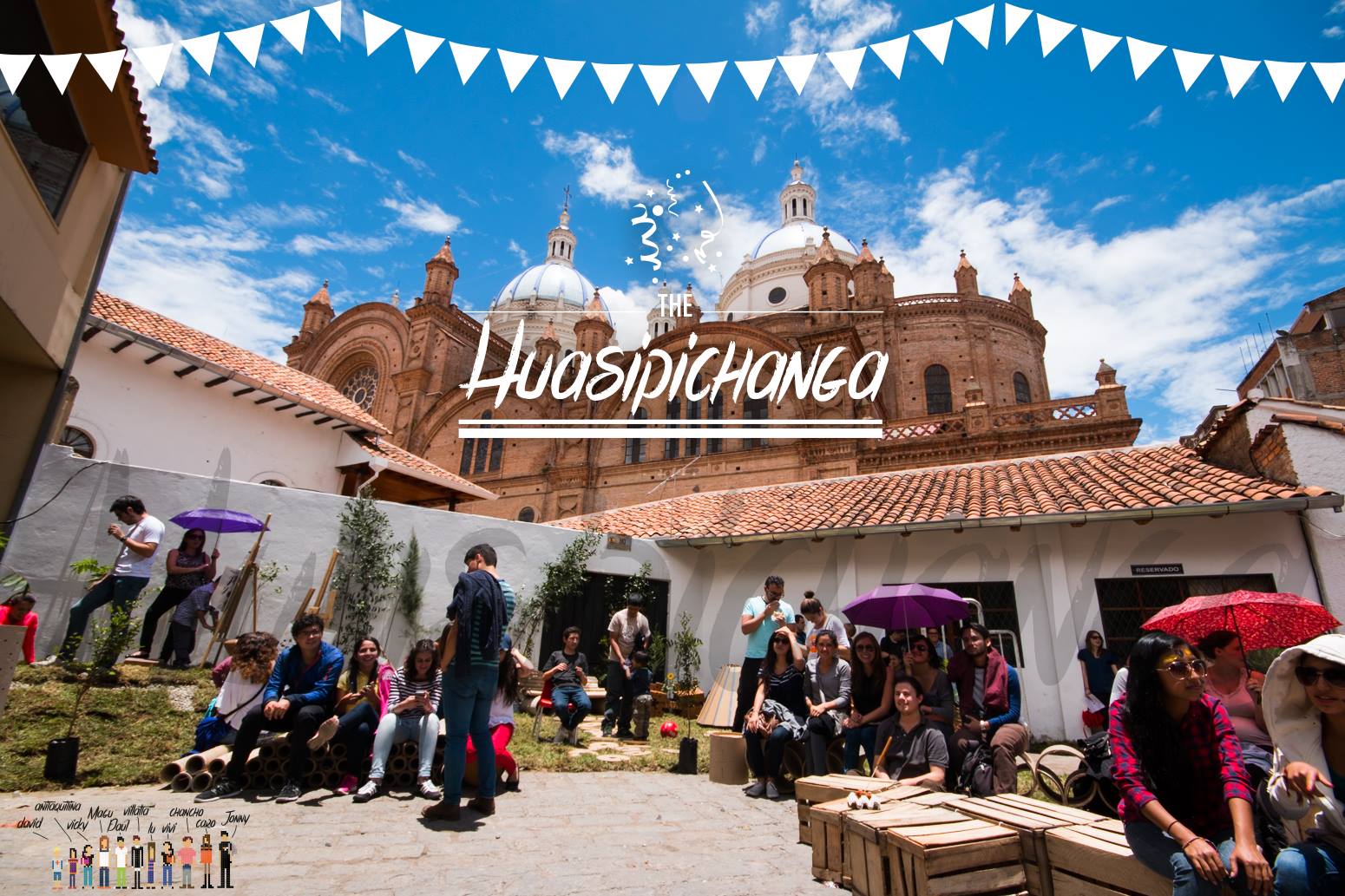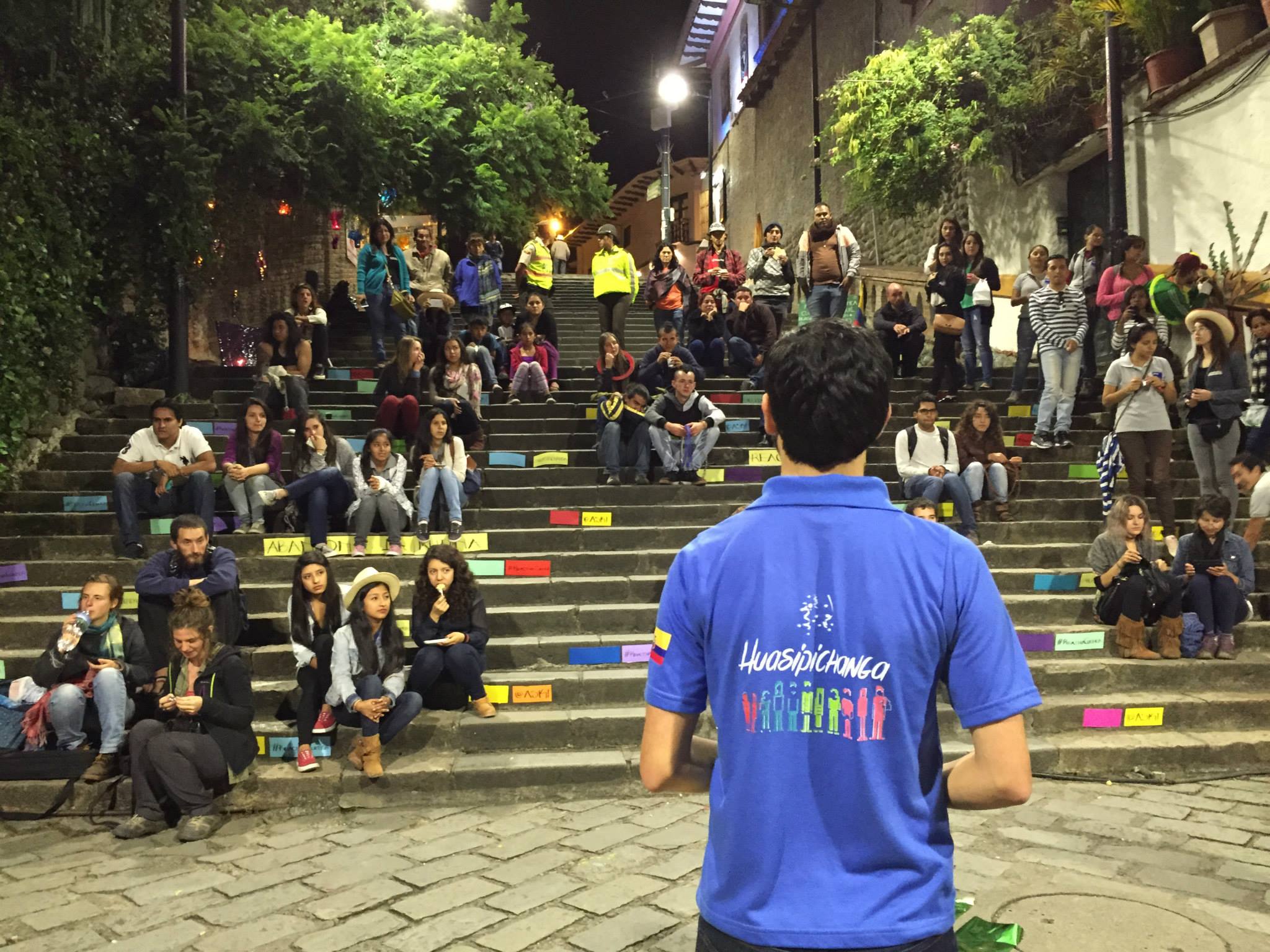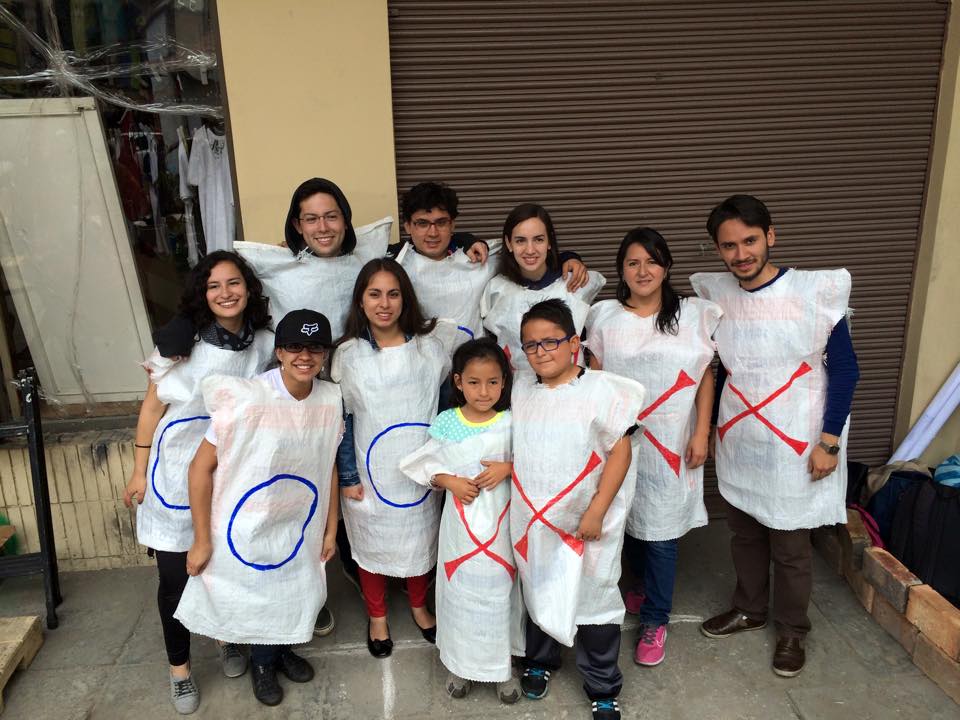teachings / z — @ La Scuola Open Source (Bari)
Co-create tool for inclusive cities
Giulia Gualtieri — Urban Strategist and Architect @ Huasipichanga
Viviana Cordero Vinueza — Urban Strategist and Lawyer @ Huasipichanga
Bernarda Coello — Lawyer & Local development specialist @ Huasipichanga
Victoria Chavez — Architect & Socio - Spatial Planner @ Huasipichanga
Melissa Cavanna — Architect & Urban economic geography specialist @ Huasipichanga



Category: Workshop
Level of difficulty: intermediate
Topics:
- open source
- inclusion
- city for children
- public space
- urban tools
Mode: a full immersion of 3 days
Dates:
08/11/20199:30 / 18:00
09/11/201910:00 / 18:00
10/11/201910:00 / 18:00
It will take place at: La Scuola Open Source (Bari)
Total duration: 21 hours (break not included)
Cost: 215 €
Output: servizi, prodotti
Recommended for
teens, students, researchers, professionals, companies, retirees, immigrants, unemployed, everybody
Min. number of partecipants to start: 15
Max. number of partecipants: 25
Held by:
-
Giulia Gualtieri
Urban Strategist and Architect / Huasipichanga
Giulia is an architect and a passionate urban developer, specialised in urban strategies and planning. She excels at engaging in various kind of situations, thanks to her international experiences and chameleonic nature. Empathy is fully part of herself, at the same time the winning card for building a strong network. After experiencing diverse professions, from architecture to communication, from urban planning to event management, she defined her professional goal to help vulnerable communities by co-creating with them more just and inclusive cities.
-
Viviana Cordero Vinueza
Urban Strategist and Lawyer / Huasipichanga
Viviana is a Lawyer with a Master ́s degree in Urban Management and Development, specialized in urban strategies and planning. She has five years of experience in the public sector as a legal advisor for public policy and in participatory methodologies for decision- making. Having worked on both bottom-up and top-down approaches she is inspired to find models of governance that allow building bridges to connect the multiple stakeholders that make cities. Her focus twofold: Firstly, on placemaking and participatory strategies for urban development and secondly on collaborative planning, especially in the inclusion of academia and social innovators as main stakeholders. Currently, she is based in Rotterdam, working in placemaking and research having as a main focus child-friendly cities and tactical urbanism tools.
-
Bernarda Coello
Lawyer & Local development specialist / Huasipichanga
Bernarda is a Lawyer with a Master´s degree in Development Studies. Specialized in strategies for local development, she focuses her career on multi-actor and multi-level governance processes, citizen participation, and ethnographic research. Bernarda works with researchers and partners to contribute to knowledge regarding strategic collective action while relating vulnerability and resilience, at local and regional levels, to broader understandings of development.
-
Victoria Chavez
Architect & Socio - Spatial Planner / Huasipichanga
Victoria is an Architect specialized in socio spatial planning and urban development. She is driven by the idea that better cities are possible by citizen engagement and participatory planning where innovation and plays a major role. For her it is important to be involved in current social discussions seeking for citizen-centric and transdisciplinar approaches that focus on engagement, collaboration and participation where research and technology are the enablers for reaching governmental, economic and societal goals.
-
Melissa Cavanna
Architect & Urban economic geography specialist / Huasipichanga
Melissa is an architect, with a spirit of an urbanist, currently studying a Research Master in Urban Economic Geography. Experienced in the public sector coordinating multiple actors for open space interventions and city planning, always trying to raise the voices of the users into the discussion. Always with a smile, she loves to work with and for people. A firm believer of the collaborative construction of processes to achieve optimal results and seeing the beauty in simple daily things that inspire our lives. Dreams of putting her grain of sand to create a more environmentally friendly and resilient world.
What is it about?
Participatory processes from multidisciplinary approach are necessary to create more inclusive and sustainable cities. In 3 days of workshop, we will co-create with the participants a tool to understand, map, and enhance more inclusive public spaces in the city of Bari. It is all about understanding that every citizen is an agent for sustainable change. Different people experience the city in different ways. We will explore the city from various lenses (women, men, kids, elderly, etc...) to understand their perspectives and answer questions like:
If you were 95cm (the average height of a healthy 3-year-old) what would you change in your city?
The idea is to develop tactical, fast-paced and practical tools that can be used by any citizen to analyze the spaces where they live and understand how the built environment affects every aspect of our lives. To create more inclusive and sustainable cities, we need more informed, proactive and committed citizens. Our workshop will focus on teaching people the practices to explore the city, their daily routes and re-imagine and re-invent their spaces to create better cities for all.
To create inclusive cities we need to build empathy first.
What will we work on?
We want to raise awareness about the fundamental role that users of public spaces should play in urban development and empower them by collaboratively create urban practices to be reproduced in any place and time. During the workshop, we will work on:
• Participative methodologies
• The role of users in urban development
• Creative initiatives to empower locals and users
• Collaborative mapping technique
• Inclusive practices in urban development
• Place-making as an effective tool for the co-creation of shared spaces.
By the end of the workshop, a collective evaluation will take place to
asses the project, its implementation, effectiveness, relevance, and
impact as well as the following steps that need to be taken to engage
Bari population and authorities in order to scale up this practices.
How does it work?
The workshop is defined by a collaborative involvement of the participants with the residents in Bari. The co-creation of the workshop itself and the final product foster the effectiveness of the tool for long-term quality of public spaces as well as promoting sustainable practice for the profession of the planner as a mediator of button-up and top-down processes.
The first day will be divided into two parts: First, a theoretical explanation and second an interactive walkshop.
For the theoretical part, we will foster an analysis on urban development and design of spaces through participatory practices to understand the impact on cities and communities. Additionally, we will reflect on cases that have been used to diminish exclusivity in public areas: co-creation theories will be experience in several cases where we will highlight the challenges that children face in daily interaction with public spaces and how those challenges are extend to their care givers (adults). This will be perceived using different methodologies, (the City at Eye Level for Kids) and tools (walkshop), which will help us to explore the city. In the second day, the participants will share their experiences about the walkshop and explain if they see the city differently. What changes would they make in the space in order to improve their lifestyle and social sphere? Based on this brainstorm, we will co-create an open-source mapping tool to empower them as citizens and to raise their awareness about the use of public areas with the aim of becoming part of the urban development process and everyday city making. On day three, we will use the developed tool to choose the location for a collective intervention. By sharing our experiences on placemaking, we will encourage the participants to intervene in the street to improve the inclusivity and sustainability of the space with a tactical urbanism approach. The final product should be reflected in an accessible online platform of gathered urban data and the experience of its instant applicability.
↳ Courses will start once the minimum number of participants is achieved.
By clicking on SUBSCRIBE you’ll get access to a form to be filled in to complete your enrolment request:
If, within the deadline, the maximum number of participants is exceeded: we will select the partecipants, you’ll receive an email with all the informations about the selection and the activity start.
If, within the deadline, the minimum number of participants is reached: you’ll receive an email with the payment details (PayPal or bank transfer). Once you’ve charged it, you’ll receive a receipt confirmation and the details of your course.
This process is designed to assure everyone the utmost transparency and the economic sustainability of the courses.


